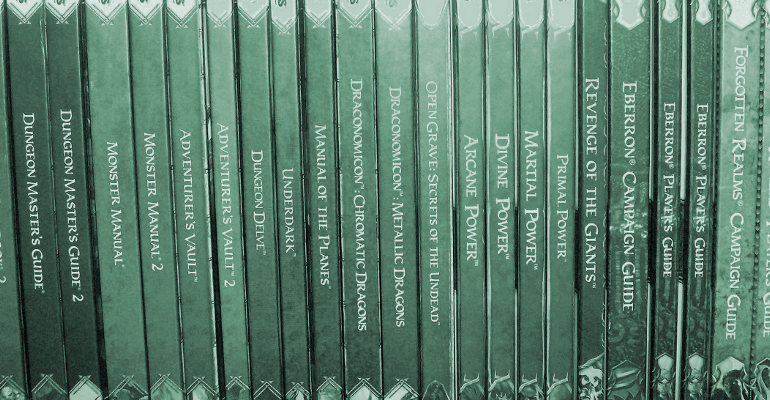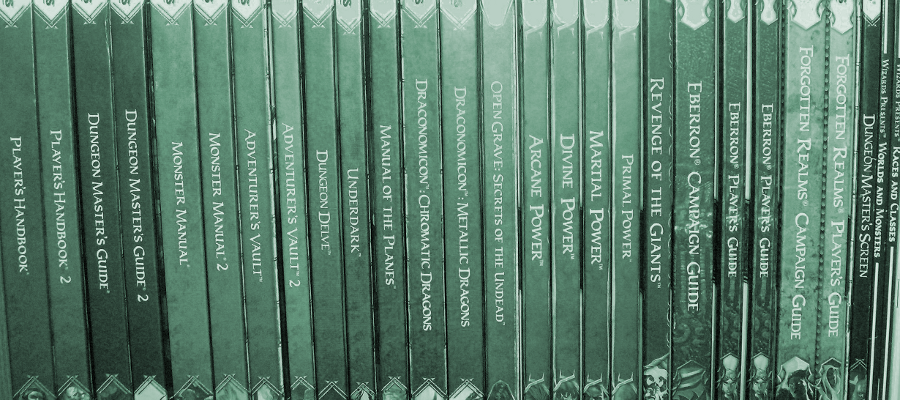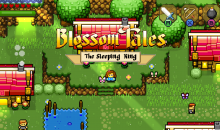On the Diving Board: A New 4E Campaign Checklist
Finally! My group and I are jumping into a long term campaign, run by yours truly. We’re diving into Eberron, my favorite published D&D setting, and we’re using 4E, my favorite five-on-five fantasy knife fight simulator. Having not prepared for a long-term D&D campaign in a little over a year, I’m making a list of basic tasks to do before we begin as well as a laundry list of goals to accomplish.
The To-Do List
- Get all of the players on the same page: I’ve come to realize that this is the most crucial part of any campaign prep. Table-top gaming is hard because managing expectations is really, really hard. I’m making sure all of the players understand what they’re in for in this Eberron game: a game where they have agency where we get to collectively plot missions, the Five Nations will be the focus, and where D&D action is still going to be in the forefront of nearly every mission.
- Communicate the setting: How effective are walls of text? We have no fucking idea, because they’ve never been read by a player before. Everything that I do, from creating players to the first mission to the emails in between sessions, needs to communicate the awesome flavor of Eberron. Sounds silly, but it’s an easy thing to forget in a game that’s devotes so much bandwidth to attack bonuses and daily powers.
- Clearly set the stage now, when it’s easy: The best lesson I learned from my first D&D campaign was to set the stage early with a few potent set pieces and let the complexity emerge through play. I will take the time to dream up a handful of awesome conflicts that involve the players and clearly communicate them early. The players will flesh things out on their own.
- Bone up on the rules: I’m the “rules lawyer” at the table, which is a great place for a DM to be in. That said, I have no idea whether or not it’s an Athletics or an Acrobatics check to jump horizontally. (Just writing that made me look it up. It’s Athletics.)
My Goals as a DM
- Trust my improve, prep only what I need: I’ve said it before here, I’m a chronic over-prepper. That said, I love prepping 4E! I love making monsters, coming up with NPCs, talking in funny voices when I think I’m alone to prepare for conversations in-game. It’s all a blast. But I sweated the small stuff for a year long campaign the first time I played 4E. I’m not doing that this time. Mouse Guard forced me to not only learn this lesson, but exercise it. If I had to put a number to it, I’d want to be able to prep for no more than a single hour for each four hour long session.
- “Fail forward”: To use a term that 13th Age coined, I’m going to attempt to implement another lesson Mouse Guard taught me about keeping momentum up in my game. This bullet point could also have been called: “say yes to the players unless I can come up with a fun complication if they fail”. I’m going to do this by setting DCs in stone and communicating consequences for failure before the dice are ever rolled.
- Tackle intrigue: I’ll be honest, my D&D campaign style is “get the thing, there are four fights between you and the thing, GO”. While this works splendidly, my intrigue experience has been limited to one-shots where the variables are very controllable. I’m looking forward to introducing and maintaining the sorts of mysteries and plot twists that can only happen across multiple sessions.
That said, I’m going to offer up the usual but valid truisms about table-top. We haven’t had a regular game for quite some time, it’ll be great to get six people around a table again to dive into something we’ll grow together over the upcoming months. The above points will make sure that our experience is fun for everyone, and rewarding for me, but the real point is the time that we’ll spend together.
I’m getting sappy, but that’s just because I’m so happy to get back to D&D. 🙂 We’ll see where it goes, I’m sure we’ll generate plenty of fodder for Dorkadia.
*Title image source: The very impressive collection of the Dice Monkey.








I believe the canonical term for “say yes to the players unless…” is “Roll the dice or say yes.” There’s an easier to say but technically incorrect (for reasons that are far too pedantic to bring up here) “Say yes or roll the dice.”
By “far too pedantic” I mean dozens of pages of argument have been had over the correct ordering and why it matters, and that only counts the ones I’ve been involved in.